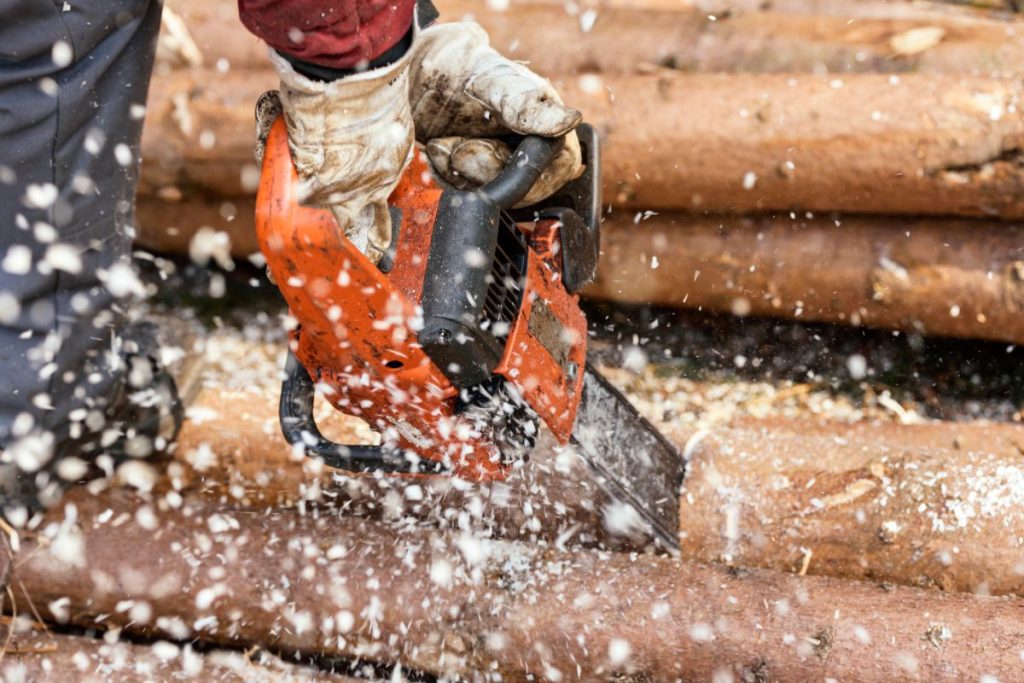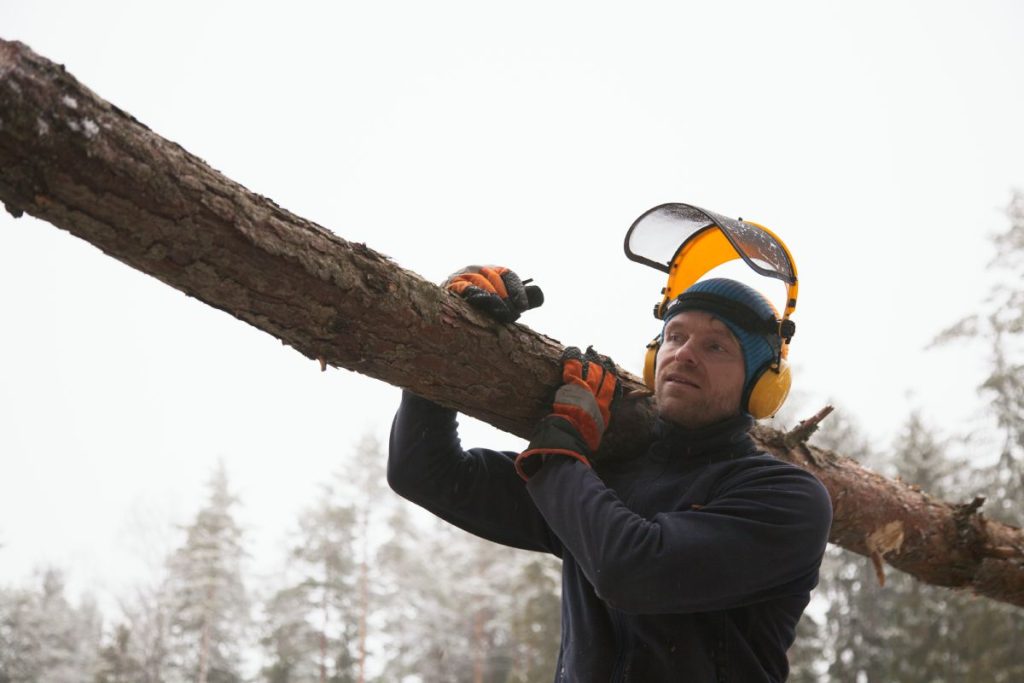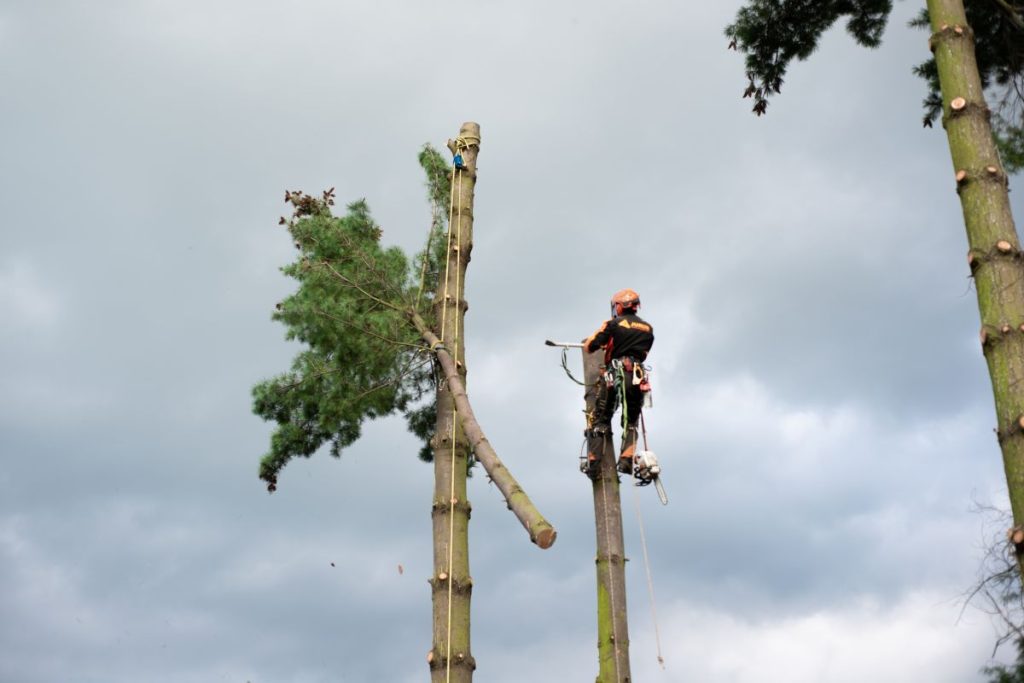If you like the sound of spending lots of time working outdoors, working with trees and using your hands a lot, you may be thinking about becoming a logger or an arborist. These roles may look and sound fairly similar at first glance, after all, they both involve trees, yet there are a number of essential and huge differences. These become even clearer if you need to hire someone for a job.
Read on to discover the key differences between loggers and arborists, to help you decide which you should hire for a certain job, or which career you may want to look into more for yourself…
What is a logger?
A logger, also known as a lumberjack, or a logging professional, is someone who fells trees. This tends to be for the purpose of getting the timber, whether to use as wood or to make paper or other wood-based products. The types of jobs that a logger might do are not limited to simply cutting down the trees themselves, or operating machines that do so.
There are many jobs associated with tree management, but being a logger generally involves a focus on getting wood for industrial or commercial purposes. Some of the tasks you may carry out as a logger include:
- Examine and select trees for cutting
- Judge the quality of the wood
- Chop down trees using various equipment including axes and chainsaws
- Prepare the area around
- Prepare the wood by trimming excess
- Transport the timber where it needs to go

What is an arborist?
Arborists, at times, also have to fell trees, and do so with the highest levels of safety and expertise. This is by no means the entirety of their job definition. An arborist is someone who looks after trees, from their health to their pruning and their removal. They can offer information and advice on tree care, with expert knowledge of how best to help your trees to thrive.
An arborist in Perth, for example, will know all about the common and uncommon species of tree you may have there, and exactly how to best care for them. All trees are different and require specialised pruning, treatment and even removal. A trained and qualified arborist will be able to do all that and more. Some of the key roles that arborists carry out include:
- Evaluating and maintaining healthy soil conditions
- Checking for pest infestations
- Checking for diseases
- Removing trees
- Trimming and removing branches
- Provide diagnosis and treatment for diseases
- Pruning
- Facilitating growth
- Creating detailed plans for tree care
As you can see, most of these tasks have to do with preserving the life and health of a tree rather than removing it. However, arborists are highly trained and experienced to remove trees in the safest way possible when it is necessary or required.
What qualifications are needed to be a logger?
To become a logger, you may need nothing more than a high school diploma or its equivalent. Formal training and qualifications aren’t generally needed to become a logger, though certain jobs may require you to take a forestry qualification. It is more likely that you will receive on-the-job training from someone who has been doing the same job for a while.

What qualifications are needed to be an arborist?
To become an arborist you should again have a high school diploma, but you are usually required to have further training, knowledge and expertise. Many arborists have a higher degree in a related field such as horticulture, biology or forestry, or an equivalent certification in arboriculture.
You will most certainly get on-the-job training as well, and may have to pass tests to gain your certification as a full arborist. Some states and companies may require you to have an arborist’s licence, and you may need an AQF level 3 certification in arboriculture to get certain jobs.
You may need a driving licence, as well as advanced training in the use of the equipment needed for certain jobs. And you will practice working at height. You will need to grow your expertise in the plants in your area, and how to treat them, care for them and remove them. This is not a job you can walk into and never learn anything about it. Being an arborist requires specialised knowledge.
Safety protocols are particularly important when training to become an arborist. A reputable arborist firm will require you to know all about how to care for trees safely as well as successfully. Once you have gained experience and skill in the field, you can advance into more specialised roles. Or even start your own company.
How much does a logger get paid?
Loggers in Australia tend to earn around AU$ 70,000 per year, though you can get paid slightly less or more depending on who you work for and where. You will generally start with a lower wage, and then reach the higher pay scale after a period of on-the-job training and time to gain experience.
You may get paid less for certain roles than others, but once established you can earn as much as AU$34 an hour.

How much does an arborist get paid?
Arborists pay can vary wildly based on how long you have been working as an arborist, where you are and your levels of skill and experience. Some arborists will earn around AU$ 60,000, which is about AU$ 28 per hour. Others will earn more than AU$ 75,000. In general, the average pay of an arborist is similar to that of a logger, at AU$ 34 to AU$ 36 an hour.
While the salaries may be comparable depending on your levels of experience and who you work for, the jobs still remain essentially different. Arborists carry out much more varied work in an average day, while loggers tend to carry out many of the same tasks over and over again.
Final thoughts
Both loggers and arborists tend to be experts in their fields, and while these both involve trees, they carry out very different jobs. You wouldn’t want a logger taking care of your garden, much like an arborist would not likely chop down trees for wood. If you would rather focus on tree care than simply removing them for timber, consider becoming a qualified arborist today.



















